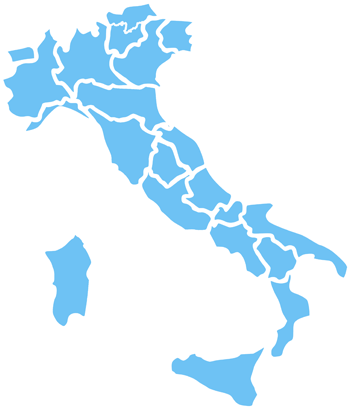State-Regions Agreement: differenze tra le versioni
| Riga 17: | Riga 17: | ||
</tr> | </tr> | ||
</table> | </table> | ||
| + | |||
| + | In Italy, following the reform of Title V of the second part of the Constitution <ref> Constitutional law no.3 of 18 October 2001 [http://www.gazzettaufficiale.biz/atti/2001/20010248/001G0430.htm Modifiche al titolo V della parte seconda della Costituzione]. Last access 01/06/2015.</ref> , the protection of health falls under the matters of concurrent legislation. The Regions have legislative powers, except for the determination of the fundamental principles, reserved to the legislation of the State. This regional autonomy has sometimes led to a certain fragmentation that has resulted in uneven application of the right of access to health care by the foreign population, undermining the principles of fairness, equality, and universality on which the SSN is based. With the aim of ensuring greater uniformity of the types of access and provision of health services for the foreign population, throughout the national territory, , on 20 December 2012, was defined the Agreement "Guidelines for the correct application of health care legislation for the foreign population by the Italian Regions and Autonomous Provinces"<ref> Permanent Conference for relations between the state, regions and autonomous provinces of Trento and Bolzano, (20/12/2012) [http://wiki.inmp.it/wiki/images/Accordo_stato_regioni_20_12_2012.pdf Indications for the correct application of legislation on health care to the foreign population by the Italian Regions and Autonomous Provinces] Agreement under article 4 of 28 August 1997 no. 281 between the government, regions and autonomous provinces of Trento and Bolzano. Last access 01/06/2015. </ref>. This is not a new law but an operational tool which contains "the national and regional regulation provisions regarding health care to immigrants, also in order to simplify the proper flow of information among healthcare providers". | ||
| + | |||
| + | ==Notes== | ||
| + | <references/> | ||
Versione delle 09:14, 3 lug 2015
|
||||||||
|
||||||||
|
||||||||
In Italy, following the reform of Title V of the second part of the Constitution [1] , the protection of health falls under the matters of concurrent legislation. The Regions have legislative powers, except for the determination of the fundamental principles, reserved to the legislation of the State. This regional autonomy has sometimes led to a certain fragmentation that has resulted in uneven application of the right of access to health care by the foreign population, undermining the principles of fairness, equality, and universality on which the SSN is based. With the aim of ensuring greater uniformity of the types of access and provision of health services for the foreign population, throughout the national territory, , on 20 December 2012, was defined the Agreement "Guidelines for the correct application of health care legislation for the foreign population by the Italian Regions and Autonomous Provinces"[2]. This is not a new law but an operational tool which contains "the national and regional regulation provisions regarding health care to immigrants, also in order to simplify the proper flow of information among healthcare providers".
Notes
- ↑ Constitutional law no.3 of 18 October 2001 Modifiche al titolo V della parte seconda della Costituzione. Last access 01/06/2015.
- ↑ Permanent Conference for relations between the state, regions and autonomous provinces of Trento and Bolzano, (20/12/2012) Indications for the correct application of legislation on health care to the foreign population by the Italian Regions and Autonomous Provinces Agreement under article 4 of 28 August 1997 no. 281 between the government, regions and autonomous provinces of Trento and Bolzano. Last access 01/06/2015.
